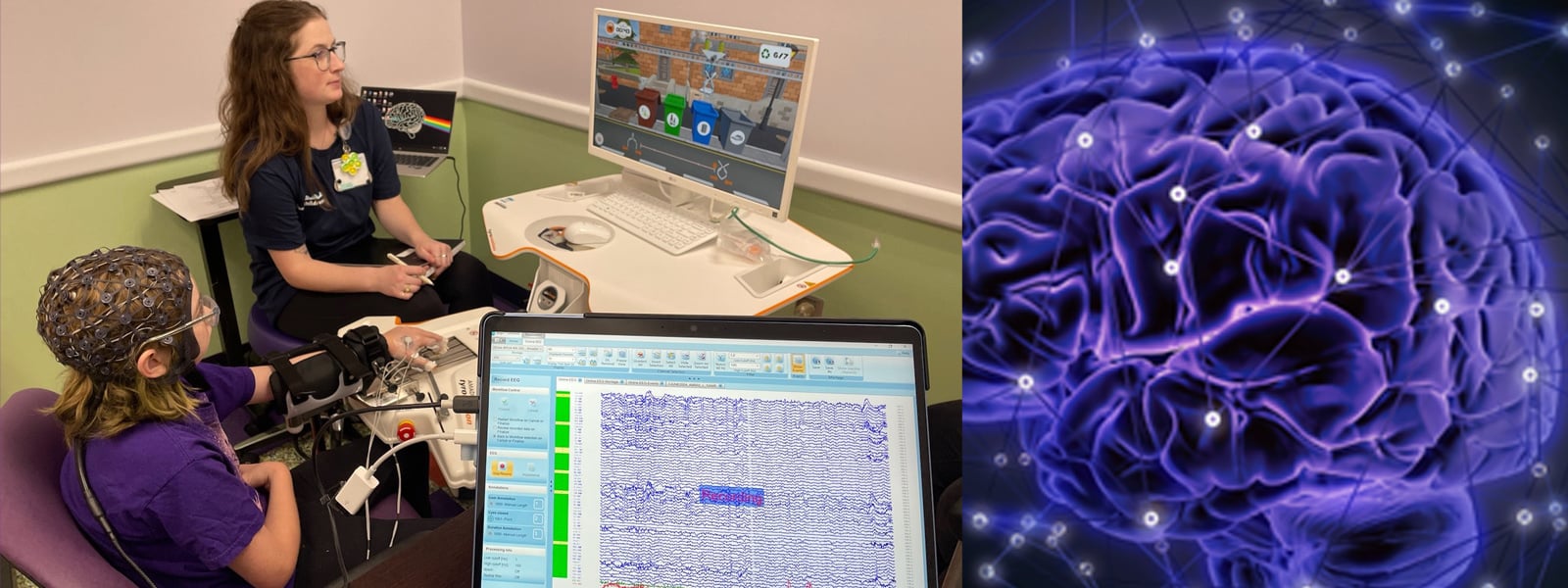
Neurosciences Research Center gets NIH grant for robotic rehabilitation
The Neurosciences Research Center team celebrates receiving the C-Progress research grant from the National Pediatric Rehabilitation Resource Center funded by NIH. The C-Progress prioritizes innovative pilot studies and critical methodological advancements that will generate data to support clinical trials. The grant is awarded to Christos Papadelis, Ph.D., Assistant Vice President of Neurosciences Research, and his Post-doctoral Research Fellow Sadra Shahdadian, Ph.D. This is the second C-Progress grant in the short history of Cook Children's Neurosciences Research team.
The grant will support a project titled, “Mapping Brain Plasticity in Response to Robotic Rehabilitation for Children with Unilateral Cerebral Palsy.” Cerebral palsy is the most common physical disability in early childhood causing serious motor and sensory impairments. About 30% of children with cerebral palsy suffer from unilateral cerebral palsy, which impairs one side of the body's fine motor skills and disrupts bimanual coordination. Rehabilitation is essential for helping children with unilateral cerebral palsy recover or maintain functionality when interacting with the environment. Neurorehabilitation with robotic devices has been introduced for promoting the child's sensorimotor recovery; yet it presents with considerable individual variability in responsiveness, possibly due to limited understanding of underlying changes in neuroplasticity related to neurorehabilitation.
This project aims to map cortical activation changes induced by intensive sensorimotor robotic-assisted neurorehabilitation of upper extremities on the cortical network related to motor learning and to correlate these changes with sensory and motor functional assessments in children with unilateral cerebral palsy. Our research may improve the understanding of neuroplasticity and its relationship with sensory and motor function, enabling better stratification of children suffering from cerebral palsy and guidance of precise interventions.